PlanetF1.com’s Verdict: Should F1 seriously evaluate a return to the V10 engine?
21 Feb 2025 5:27 PM
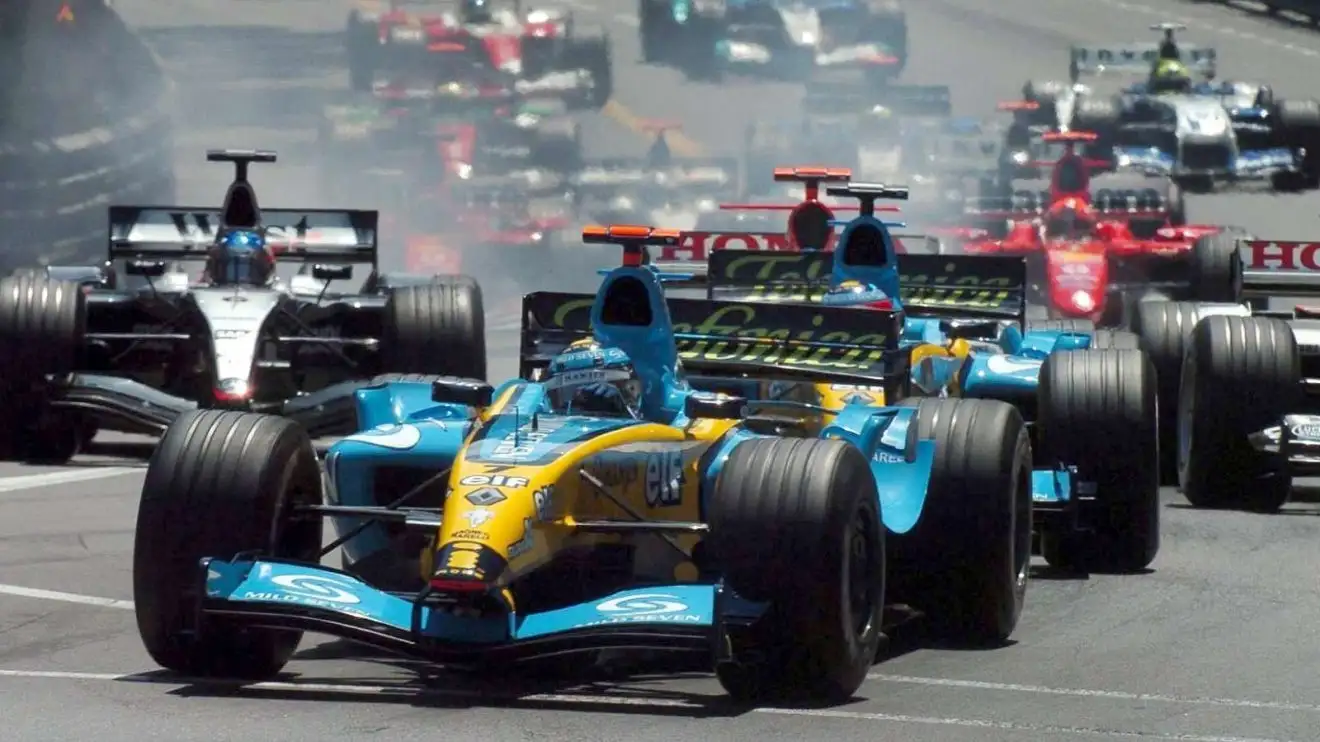
The start of the 2004 Formula 1 Monaco Grand Prix.
FIA President Mohammed Ben Sulayem has suggested a return to the V10 engine could be made in the future, with sustainable fuels somewhat negating the need for hybrid engines’ frugality.
The V10 was last used in Formula 1 in 2005 (aside from Toro Rosso using a detuned V10 in their first season in 2006), with the high-revving monsters producing some 1000bhp from their 3.0-litre, 21,000 rpm architecture.
How have V10s become a topic of discussion again?
With Formula 1 set to introduce sustainable fuels next year as the sport changes up the engine regulations for the first time since the introduction of the hybrid engine in 2014, the frugality and efficiency offered by the engines become less relevant at a sporting level.
FIA President Mohammed Ben Sulayem, this week, said that “While we look forward to the introduction of the 2026 regulations on chassis and power unit, we must also lead the way on future technological motorsport trends. We should consider a range of directions including the roaring sound of the V10 running on sustainable fuel.
“Whichever direction is chosen, we must support the team and manufacturers in ensuring cost control on R&D expenditure.”
The return to a V10 would prove hugely popular with fans, due to the evocative sound they produce, but is the return of a technology that was becoming outdated 20 years ago really a possibility?
Thomas Maher: V10s are sentimental, but in the past
Don’t get me wrong. I adore the V10. Ever since I first watched a race in the late 1990s, the sheer ridiculous exuberance of a V10 at full chat – that, to me, is the quintessential essence of Formula 1.
But, unfortunately, the noise is all the V10 can boast over the technological masterpieces of today’s hybrids, and the unquestionable step that will inevitably be created by the new engine rules incoming next year. In contrast, the normally aspirated V10 is a dinosaur. It’s inefficient, wasteful, and lacks road relevance – all descriptors that set today’s engine manufacturers on edge.
The 2026 engine regulations were made entirely to appeal to said manufacturers, with F1 proving a hugely useful proving ground for road-relevant technologies. Small internal combustion engines with electric ancillaries, as an alternative to full electric, is the path of travel for manufacturers – so proposing a return to the V10 just seems like a pipe dream.
Certainly, sources within leading manufacturers have suggested that the proposal brought up by Ben Sulayem, made on the eve of a fresh rules cycle for power units, does little other than introduce unwelcome uncertainty at a time when manufacturers are seeking to maximise the relevance of the new regulations for a knowledge base that is applicable for road car use.
With global automotive regulations tackling the issues of carbon emissions and pollutants, achieving high-performance levels without the use of turbos and hybrid ancillaries is likely to be nigh-on impossible with older technologies such as large displacement engines like the V10 – an engine layout that isn’t used in modern high-performance vehicles for those reasons.
As a result, these sources have indicated, pushing through regulations to re-introduce a V10 architecture – even if in a decade’s time once the upcoming regulations have returned a reward for the investment made for them – is unlikely to appeal to the manufacturers.
While the use of sustainable fuels does add some logic to the idea of a V10 return, given that they wouldn’t contribute to the sport’s carbon footprint – a huge consideration under F1’s push to become net carbon zero by 2030 – the idea falls apart under closer scrutiny.
Aside from the emotional connection with the noise of the V10, much of the appeal of its time was that those engines powered narrow, short, and nimble cars with grooved tyres – making the cars ballistic missiles that appeared barely under control by the drivers.
20 years on since the last full V10 season, the cars are around 33 percent heavier and on slick tyres – while some weight could undoubtedly be clawed back by switching to more simplistic engines, the same handling characteristics associated with the V10 era were bred out of the F1 cars a long time ago.
If the path was pursued, then the only way it could work is to allow full-scale modern research and development, as well as manufacturing processes in order to maximise the power output and reliability – just how much performance could be achieved with the V10 architecture that was already developing around 1000bhp at 21,000rpm 20 years ago?
In a cost-cap era, it’s tough to see how the same levels of longevity and reliability could be reached with such high-revving motors – all for an engine technology that manufacturers simply don’t really want to throw money at, given its lack of relevancy.
Ben Sulayem’s comments this week echo what F1 CEO Stefano Domenicali expressed last year about evaluating a return to the V10, but I suspect this is something that’s been said with an eye to improving his own popularity after what has been a few tough months for Ben Sulayem’s public image.
With FIA elections coming up later this year, making comments about perhaps the most wished-for idea for F1 in the last 20 years smacks of a politician promising tax cuts and lower grocery prices as low-hanging fruit designed to entice but without any real grounding in reality.
Of course, once sustainable fuels are here and proven at Formula 1 level, then maybe let’s see if the manufacturers are up for it…
Henry Valantine: V10s sounded like F1 should, but weren’t famed for reliability
I’m of the generation that had its first memories of Formula 1 being the screaming V10 engines, and followed it throughout the gradual decrease in revs and volume since.
Now, there is a part of me that yearns to hear – to feel – that sound, that rumble, go straight through me again upon a car going past. I’ll never, ever forget my first experience of seeing a Formula 1 car in the flesh as a teenager, and this was Lewis Hamilton doing a demo run at Brands Hatch in what was ‘only’ a V8 at the time, and I felt like I’d lost my hearing for hours afterwards.
But it felt worth it, because that feeling was like nothing I had ever experienced before and, as a fan of Formula 1, there was something intangible about the car in person that didn’t quite come across on TV – similar to seeing a live concert rather than listening to music on your headphones. Both are great, but there’s just something extra about being there in the moment.
Unfortunately, for all the incredible technological advancements and phenomenal efficiency of these power units, the current V6 just doesn’t inspire the same visceral response as what came before it.
However, this is where I’ll probably disappoint those in the ‘bring them back at all costs’ camp, because my other abiding memory of the V10 era is, while there will no doubt have been improvements over time, they did tend to break down quite a lot more than the engines of today.
In the cost cap era, sustainable fuel or not, might a return to such high-revving engines be a recipe for more grid penalties and less innovation elsewhere because of teams watching their spending? It’s impossible to say for sure, but that would be my early prediction.
I realise I’ve given a non-answer here, but while the obvious pros would be to hark back to a time where Formula 1 cars looked – and sounded – like the best of the best, the practicality involved would seem like a different issue. That and, for all that we would want the louder engines, the very best technology does seem to have moved on. I’m on the fence.
Oliver Harden: Could this be Sebastian Vettel’s lasting legacy?
The greatest achievement by Liberty Media?
Making a commercial success out of this era of F1 with those engines.
The sport lost so much when the old V8s – and before them, the great V10s – were dropped that it was scarcely imaginable that Formula 1 could grow so much in popularity in the years since.
This, we keep being told, is progress. It’s just the way the world is heading and we must shut up and accept it. The good old days are gone.
Yet Sebastian Vettel has shown that there is a different way, one to preserve all that is good about motorsport while adhering to the demands of the modern world.
One of Vettel’s last memorable contributions to F1 was his call to “bring back the f***ing V12s” as he pulled up to retire his Ferrari at the 2019 Russian Grand Prix.
And since he retired at the end of 2022, Vettel seems to have spent the vast majority of his time driving historic cars – Nigel Mansell’s title-winning Williams FW14B of 1992, Ayrton Senna’s McLaren MP4/8 – entirely on sustainable fuels.
He has stopped short of saying it so explicitly, but it sometime feels that these runs are personal pleas from Vettel to show that it can indeed be done.
And if it can be done, it should.
Elizabeth Blackstock: Formula 1 is about innovation, not replication
MBS has had his feet to the flames for a while now, introducing unpopular rules — fines for swearing, race director swaps — to the extent that fans booed the mere mention of the FIA at the F1 75 Live launch at the O2 Center.
Perhaps keen on an easy save, MBS came out two days later with a proposed return to V10 engines, something that longtime Formula 1 fans have been begging for since the moment they were regulated out of existence. It’s been low-hanging fruit for years, and now it sounds like Sulayem has seized it.
The only problem is that Formula 1 is a sport of innovation, and looking to recreate the finest moments from the past of the sport in the future of the sport can only take the sport so far.
V10s on sustainable fuel would make a fascinating step, but sustainability involves far more than just the implementation of biofuel.
Noise is a pollutant in the same way that emissions are, and reverting to the past with the sole intention of having a big, loud engine shouldn’t be the way forward for a sport and a sanctioning body looking to benefit the environment.
Matt Somerfield: Not justifiable for F1 engine manufacturers
Firstly, I think it’s important to note that the outgoing power units have been used for over a decade, which justifies the significant development costs that had been accrued by those within the sport.
To speak about a future engine development programme when we haven’t even seen or heard the new power units seems a little counterproductive.
A return to V10 engines might seem like a popular idea, at least with the fanbase but, at a time where the world in general is moving in the opposite direction it might not be justifiable for the manufacturers.
And, this is where there’s a rub, as the manufacturers need to see value in producing a product, whether that’s in terms of marketing or in terms of engineering, that’s going to trickle down to their road car business.
Furthermore, the sport has just encouraged two new manufacturers to join the fold for that purpose, which seems detrimental to the path that’s to be forged going forward and probably drags a larger question into view – does Formula One want to continue to be an engineering-led endeavor or is it being rolled up into more of an entertainment package?
Read next: Fresh Lewis Hamilton, Charles Leclerc comparison as unofficial Ferrari SF-25 laptimes surface – reports
Mohammed Ben Sulayem



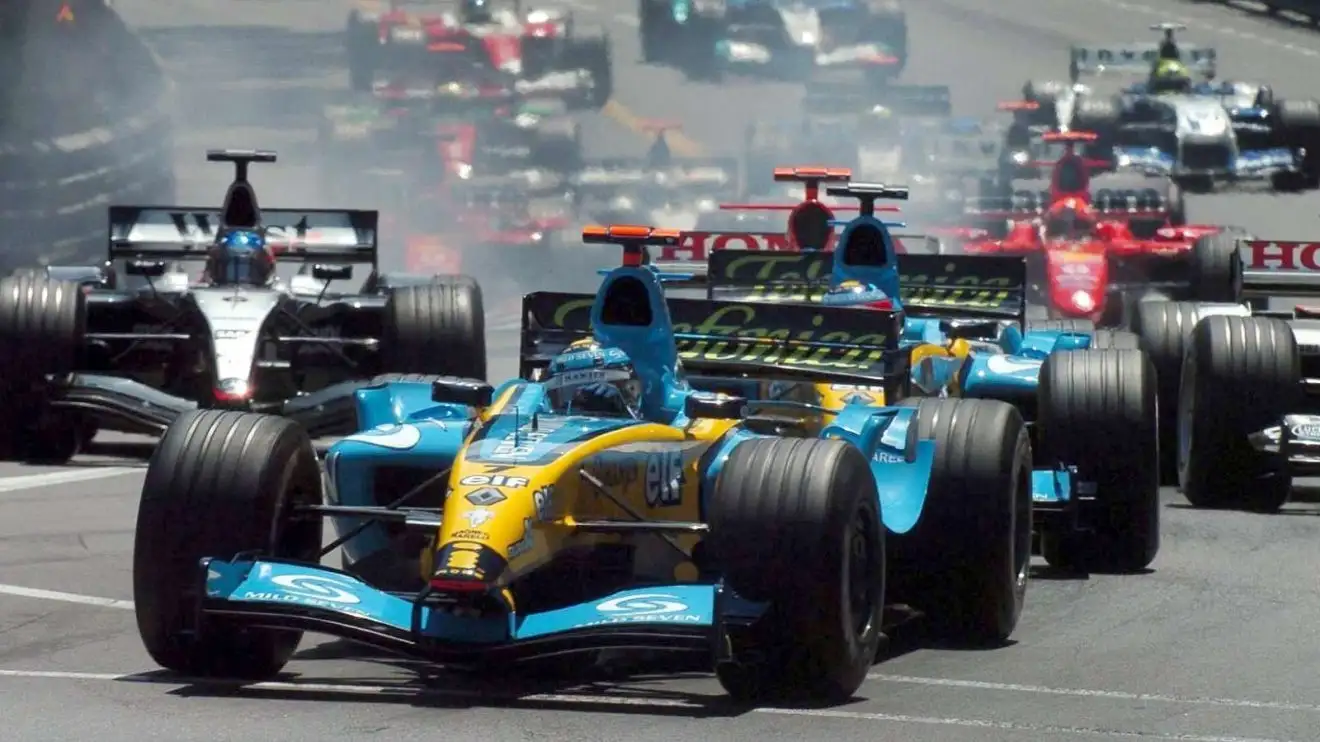

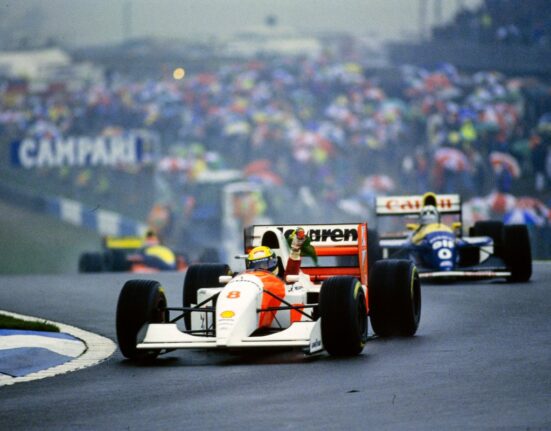
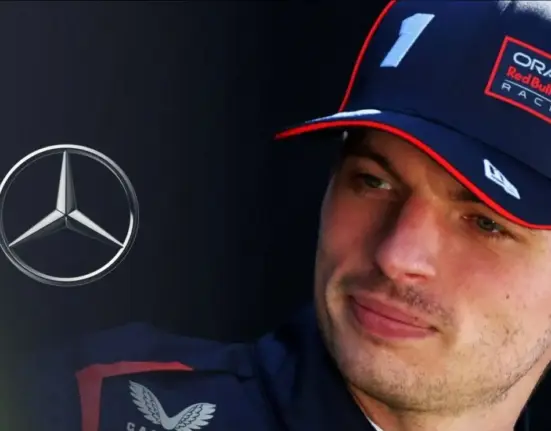
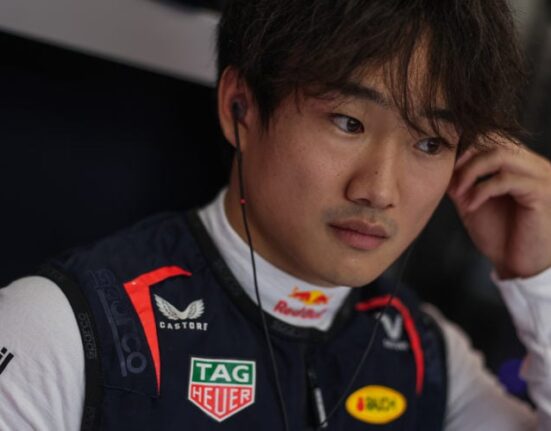

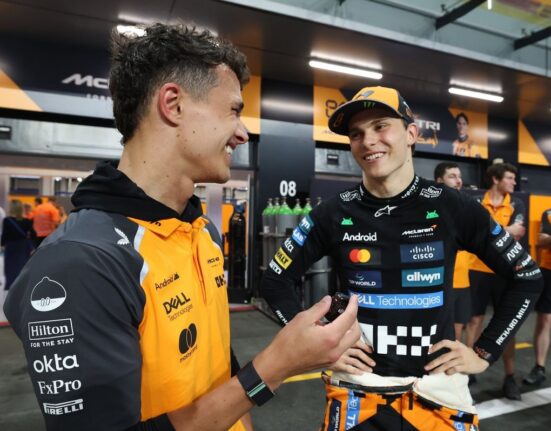
Leave feedback about this